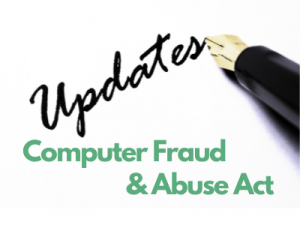United States v. Keith Gartenlaub 16-50339 (9th Cir.)
Today, the EFF and the ACLU jointly filed an Amicus Brief on behalf of our client Keith Gartenlaub in his appeal of his criminal conviction.
In 2014, the FBI, incorrectly suspecting Mr. Gartenlaub of being a Chinese spy, obtained a warrant from the Foreign Intelligence Surveillance Court (“FISC”) and searched his computers.
The search turned up no evidence of espionage. It did turn up a handful of child pornography files. The evidence at trial, however, never established that Mr. Gartenlaub ever viewed the files and was entirely consistent with someone else placing them on his computer.
Nonetheless, Mr. Gartenlaub was convicted of possession of child pornography and is currently serving a 41 month sentence. As the Amicus Brief recognizes, this case presents important Fourth Amendment issues as to the scope of a FISC search warrant and the use of information obtained from computers during such a search.
The scope of a FISC search warrant is limited to a search for information regarding foreign intelligence activity and does not include unrelated criminal activity. As such, Congress allowed for a less restrictive approach to searches under a FISC warrant than the Fourth Amendment normally permits.
But the less restrictive standard for a FISC warrant, and its secret nature, invites abuse. It allows the government to effectively search for information under the pretext of a FISC warrant in a manner the Fourth Amendment would normally prohibit.
To do so, the government typically invokes a Fourth Amendment doctrine known as the “plain view” doctrine.
The plain view doctrine permits use of evidence outside the scope of a warrant if its criminality is readily apparent for all to see out in the open.
Typically, in the FISC warrant context, the government claims that it needs to open every file on a computer to search for foreign intelligence information and then argues that evidence of other criminality it discovers in so doing was in plain view. The Amicus Brief rightly points out the dangers of this, and argues that use of information obtained outside of the scope of a FISC warrant should be prohibited.
FISC warrants are highly problematic under the Fourth Amendment for another reason. No criminal defendant, in the roughly 35 year history of FISC warrants, has ever been allowed to see the government’s application to the FISC for the warrant.
FISC warrants, because of their alleged connection to national security, are by their nature secret. This makes it difficult, if not impossible, for a criminal defendant to exercise his or her constitutional rights to challenge the warrant under the Fourth and Fifth Amendments. If you do not know the legal basis for the warrant it is hard to challenge its legal basis. Thus, Mr. Gartenlaub was convicted on the basis of a search he was effectively never allowed to challenge.
This appeal seeks to rectify this form of constitutional abuse of a defendant’s right to be free from unreasonable searches and seizures and to have due process of law. Here is the Amicus Brief: 34 EFF Amicus Brief 2017-02-15 U.S. v. Gartenlaub (367)




